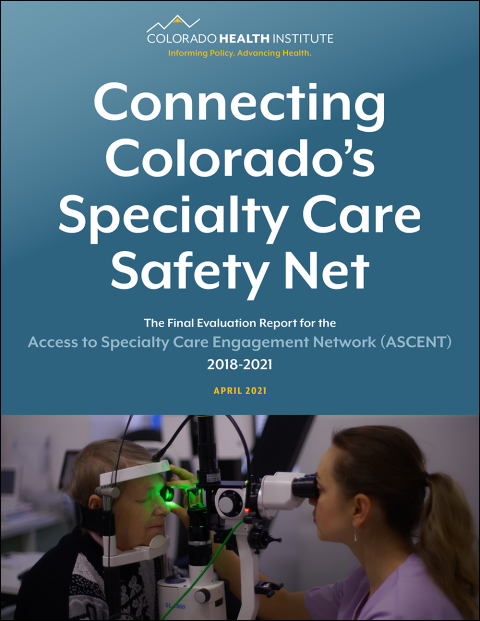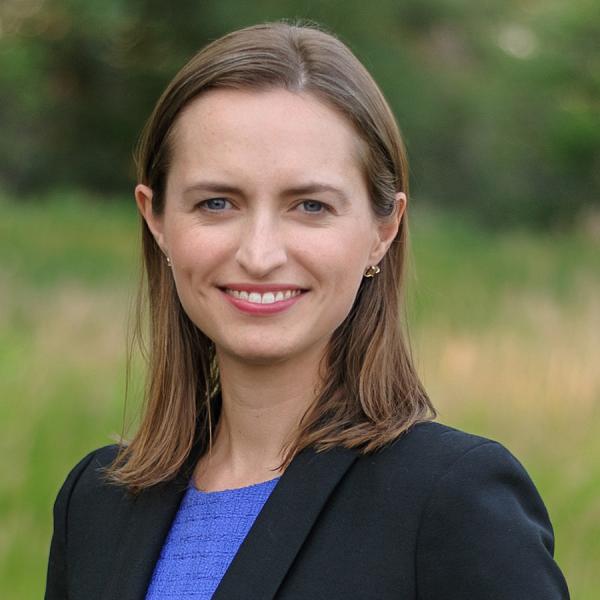
Connecting Colorado’s Specialty Care Safety Net
Key Takeaways
- Between 2018-2021, the ASCENT cohort increased access to specialty care for uninsured Coloradans and Health First Colorado members by offering e-consults and patient referrals to face-to-face specialty care, by sharing best practices across programs, and by informing specialty care policy development.
- Though patients of cohort members benefited from increased access to specialty care — through an increase in the number of completed referrals and e-consults, a reduction in wait times for care, and growth in the number of specialty care providers participating — that improvement was mostly within individual programs and not due to referrals across cohort member programs.
- Significant policy barriers to creating a comprehensive specialty care safety net remain. These include a need for a reimbursed, statewide, workflow-integrated e-consult solution, additional supports for patients who need face-to-face specialty care services, and more specialty care providers accepting Health First Colorado as insurance.More than 4,000 Coloradans who didn’t have health insurance or who were enrolled in Health First Colorado, the state’s Medicaid program, were able to access specialty care between 2018 and 2021 as a result of the work of an innovative cohort of health organizations supported by Kaiser Permanente Colorado.
The Access to Specialty Care Engagement Network (ASCENT), was provided a three-year grant by Kaiser Permanente. The grant work was aimed at addressing the lack of specialty care provider capacity in Colorado, gaps in insurance coverage, and reluctance of some providers to serve Health First Colorado (Medicaid) members.
The grant support enabled five local organizations, including Kaiser Permanente, to participate in a cohort focused on expanding their specialty care programs. The four other organizations participating in the cohort were:
- Mile High Health Alliance (Denver)
- Community Foundation Boulder County — Boulder County Health Improvement Collaborative (Denver/Boulder)
- Hopelight Medical Clinic (Northern Colorado)
- Summit Community Care Clinic (Mountain Communities of Colorado
Colorado Health Institute (CHI) worked with Kaiser Permanente to convene and facilitate the cohort, and to evaluate its impact. Between 2018 and 2021, CHI engaged the cohort’s five members to connect their specialty care programs into a network across specialty areas, patient populations, and service areas to improve access to specialty care. CHI also evaluated the cohort’s services delivered, lessons learned, and policy implications.
“Safety net and other community clinics have unique challenges providing specialized care to those they serve due to limited resources — the COVID-19 pandemic only further highlighted these struggles. We’re pleased with the work of this local cohort over the last three years, which illustrated how support and collaboration can lead to more Coloradans receiving the care they need even during the most uncertain times.”
— Ellen Weaver, Kaiser Permanente Director of Community Health and Engagement in Colorado
A primary question guided the work: If a group of Colorado’s specialty care safety net programs connected their programs, could they increase access to care for uninsured Coloradans and Health First Colorado members more than their individual programs?
ASCENT has been successful in increasing referrals and completions, decreasing wait times, and increasing the number of Health First Colorado members and uninsured patients who were able to access specialty care. However, that improvement was mostly within individual programs and not due to referrals across cohort member programs.
ASCENT can serve as a model for increasing specialty care access in Colorado. To strengthen the specialty care safety net, health leaders — including program administrators, heath systems, and funders — must invest in e-consult systems and increase the availability of specialty care providers serving Health First Colorado members and uninsured individuals.
This report highlights the findings of the evaluation and outlines needed policy changes identified by cohort members to continue to improve access to specialty care. The fact sheets also summarize the cohort’s achievements, lessons learned, and recommendations for policymakers when it comes to advancing e-consults and increasing access to face-to-face care with specialty care providers.


